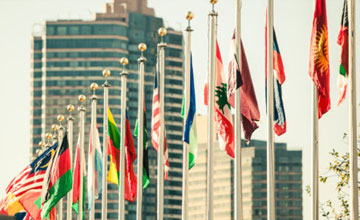
Danielle N. Lussier
- Courses1
- Reviews5
- School: Grinnell College
- Campus:
- Department: Political Science
- Email address: Join to see
- Phone: Join to see
-
Location:
1115 8th Ave
Grinnell, IA - 50112 - Dates at Grinnell College: November 2012 - May 2017
- Office Hours: Join to see
Biography
Grinnell College - Political Science
Resume
2004
Doctor of Philosophy - PhD
Political Science and Government
University of California
Berkeley
2000
Social Sciences
Yaroslavl Demidov State University
1994
Bachelor of Arts - BA
Russian
Central European
East European and Eurasian Studies
Wesleyan University
Data Analysis
Research
Ethnography
Public Speaking
Teaching
Men
Muslims
and Attitudes Toward Sex-Based Inequality
Men
Muslims
and Attitudes Toward Sex-Based Inequality
Are Arabs Sexist? The Institutions
Perhaps
But Not the People
What is the Leninist Legacy? Assessing Twenty Years of Scholarship
From Solidarity to Division: An Analysis of Lech Walesa’s Transition to Constituted Leadership
Indonesia: The Benefits of Civic Engagement
Constraining Elites in Russia and Indonesia: Political Participation and Regime Survival
Почему в Индонезии больше демократии
чем в России
This article examines the role of houses of worship as institutions where individuals acquire civic skills that can be deployed for political participation in the world's largest Muslim‐majority democracy: Indonesia. Drawing on participant observation and interviews in Muslim
Protestant
and Catholic religious communities in Yogyakarta
Indonesia
this article investigates three questions: (1) What opportunities exist for individuals worshipping in Indonesian churches and mosques to develop and practice civic skills as part of their religious engagement? (2) Does civic skill opportunity vary across religious denominations? and (3) What factors might explain variation across different religious settings? The study shows that mosques offer fewer prospects for their worshippers to develop civic skills than do churches. These denominational differences can be explained by a house of worship's management practices
which are shaped by its degree of autonomy
style of worship
and the relative size of the religious denomination.
Mosques
Churches
and Civic Skill Opportunities in Indonesia
Analysts and pundits from across the American political spectrum describe Islamic fundamentalism as one of the greatest threats to modern
Western-style democracy. Yet very few non-Muslims would be able to venture an accurate definition of political Islam. Fully revised and updated
The Many Faces of Political Islam thoroughly analyzes the many facets of this political ideology and shows its impact on global relations.
The Many Faces of Political Islam: Religion and Politics in Muslim Societies
Second Edition
Epidemic Breakpoint: Confronting HIV/AIDS in Russia’s Regions
Contacting and Complaining: Political Participation and the Failure of Democracy in Russia
The Republics and Regions of the Russian Federation
Studies of elections in young democracies point to the risk of elections intensifying existing social conflicts
a process observed in Indonesia in recent years. The 2017 mayoral election in Yogyakarta contradicts this trend
presenting an empirical puzzle. Despite the fact that local conditions might encourage electoral mobilization along sectarian lines
we find evidence of restraint. Based on analysis of the contents of sermons in 12 mosques and churches in the month before the election we identify three factors that discourage religious leaders from exercising opportunities to intensify religious tension. These include (a) elites were not motivated to exacerbate communal tension because they do not feel the election will bring about reform or change that would seriously affect their established position
(b) even though sectarian messaging is possible
the elites did not believe masses could be easily persuaded by sectarian political messaging
and (c) political outbidding by using sectarian messages would risk confronting the local dominant culture of harmony. These findings suggest that several factors need to be activated for religious leaders to exercise their moral authority over worshippers for political purposes. The presence of an opportunity structure for intensifying sectarian conflict is not sufficient for that conflict to emerge.
Religious Leaders and Elections in the Polarizing Context of Indonesia
This article examines ideological constraint among Russian foreign policy elites
using all seven waves of the Survey of Russian Elites 1993–2016 to explore four questions: (1) Do attitudes expressed by members of the Russian foreign policy elite form a constrained belief system? (2) What is the content of Russian elite belief systems? (3) Do different groups within the foreign policy community differ with regard to their ideological attachments? (4) How have these belief systems changed over time? My statistical analysis reveals two structured belief systems within Russia’s elite: one focused on attitudes toward the US and another regarding economic and political institutions. Attitudes toward the US have vacillated over time
compressing in a more hostile direction in 2016. In analyzing these elites’ attitudes
variation over time proves more significant than variation between elite groups.
Ideology among Russian Elites: Attitudes Toward the United States as a Belief System
Danielle
Lussier
Department of Sociology
University of Gadjah Mada
Kennan Institute
Siberian Federal University
Harvard's Belfer Center
Grinnell College
EastWest Institute
Washington D.C. Metro Area
Research Scholar
Kennan Institute
Grinnell College
Associate Professor
Grinnell College
Harvard's Belfer Center
Cambridge
MA
Research Associate
Yogyakarta Province
Indonesia
Visiting Scholar
Department of Sociology
University of Gadjah Mada
New York
NY
Research Analyst
EastWest Institute
Krasnoyarsk Territory
Russian Federation
Visiting Scholar
Siberian Federal University
Russian
Indonesian
Fellowship recipient
One-semester salary support for manuscript development of book project Mobilizing the Devout: Mosques
Churches
and Political Participation in Indonesia
Global Religion Research Initiative
Jacob K. Javits Fellow
Four-year Department of Education fellowship for graduate study (2005-2009)
United States Department of Education
Grant recipient
Travel grant to fund research on HIV/AIDS in Russia
International Research and Exchanges Board
U.S.-Russia Young Leadership Fellow for Public Service
A program of the Bureau of Educational and Cultural Affairs of the U.S. Department of State
administered by the International Research & Exchanges Board (IREX)
which provided for one year of sponsored academic research and public service in Russia
United States Department of State
Grant recipient
$20
520 grant for collaboration with scholars at the University of Gadjah Mada
Yogyakarta
Indonesia on the project “Religious Mobilization in Indonesian Houses of Worship.”
Global Religion Research Initiative
